-
Acquisition Strategies Are Completely Different Sports

Most real estate investors are open to many different acquisition strategies for finding, negotiating and financing their deals. Thoughtful Real Estate Entrepreneurs, on the other hand, tend to be more selective, and stick to the acquisition strategies that best fit their talents and gifts. In this episode, Jeff describes why employing different acquisition strategies is like playing completely different sports, and explains how this can hinder an investor’s growth.
-
200th Episode! Why I Don’t Think of Tenants as ‘Customers’

As real estate investors and rental property owners, are tenants our customers? Seems like an obvious question with an obvious ‘yes’ answer, but when we look at it from a different perspective we get a different answer. In this special 200th episode of Racking Up Rentals, Jeff explains why he does NOT see tenants as customers, and instead sees them in a different role. This change of perspective reframes entirely how we see the business of building a rental portfolio.
-
“I Can Tell You’re My Kind of People”

The holy grail of relationship-based negotiation and Seller Relations is when your Seller says—or even thinks—“I can tell you’re my kind of people.” In this episode, Jeff tells the story of a coaching client’s recent deal, in which the coaching client got the deal as a result of successfully building rapport and leading the Seller to the natural conclusion that the buyer was “their kind of people.”
-
Only Buy Deals You’ve Personally Negotiated

Many real estate investors have a mentality of “I don’t care where the deals come from as long as they make sense.” These investors are more than happy to buy properties from wholesalers, through real estate agents, or any other source. But as Thoughtful Real Estate Entrepreneurs, we aren’t interested in buying properties negotiated by other people—at all. In this episode, Jeff explains why TREES are so committed to negotiating their own purchases, and discusses the critical differences between buying “properties” and buying “opportunities.”
-
The Myth of “Low Inventory”
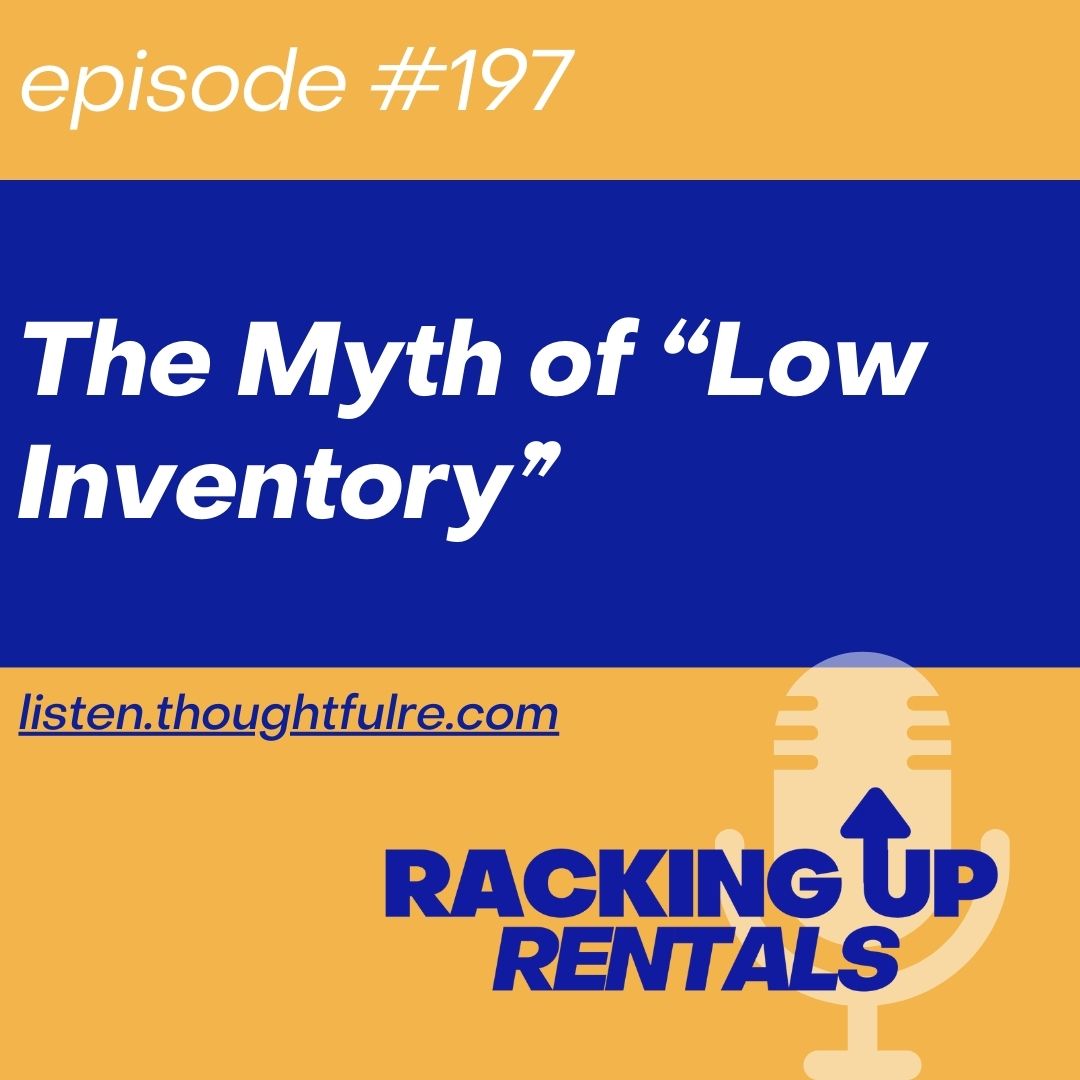
Real estate investors in today’s market are finding it difficult to buy properties the traditional way. One of the main difficulties they lament is “low inventory.” But is inventory really low? And is “low inventory” even an issue that should affect them? In this episode, Jeff reframes what inventory is, explains why there’s not really low inventory at all and why higher inventory isn’t necessarily better. Most importantly, Jeff explains how you can continue to grow your portfolio regardless of what the inventory statistics say.
-
The INCREDIBLE Growth You Can Experience in Just 5 Years, with Alexandra Haider
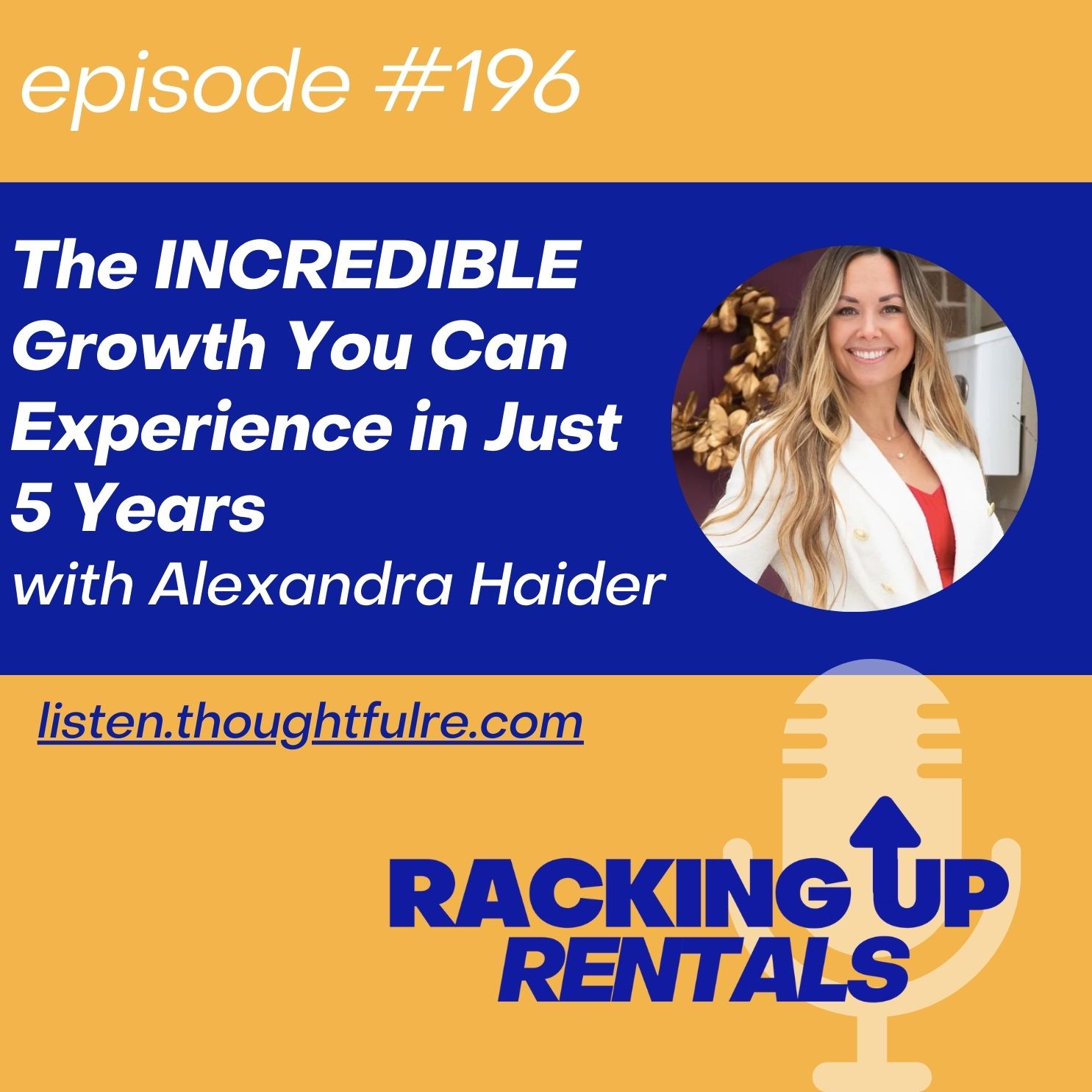
As real estate investors, we are growth-oriented creatures. We want to grow our portfolios, wealth and cash flow to achieve financial freedom. But most of us also want to grow as humans as well; fortunately, the two go hand-in-hand. In this episode, Jeff interviews real estate entrepreneur Alexandra Haider, who—in just the first five years of her real estate investing career—has built a portfolio of hundreds of residential units and hundreds of thousands of square feet of commercial real estate. Alexandra shares her story, tips for growing into new and bigger deal types, and growing as a person and entrepreneur along the path.
-
“Unreasonable Sellers” and Why I Love Them
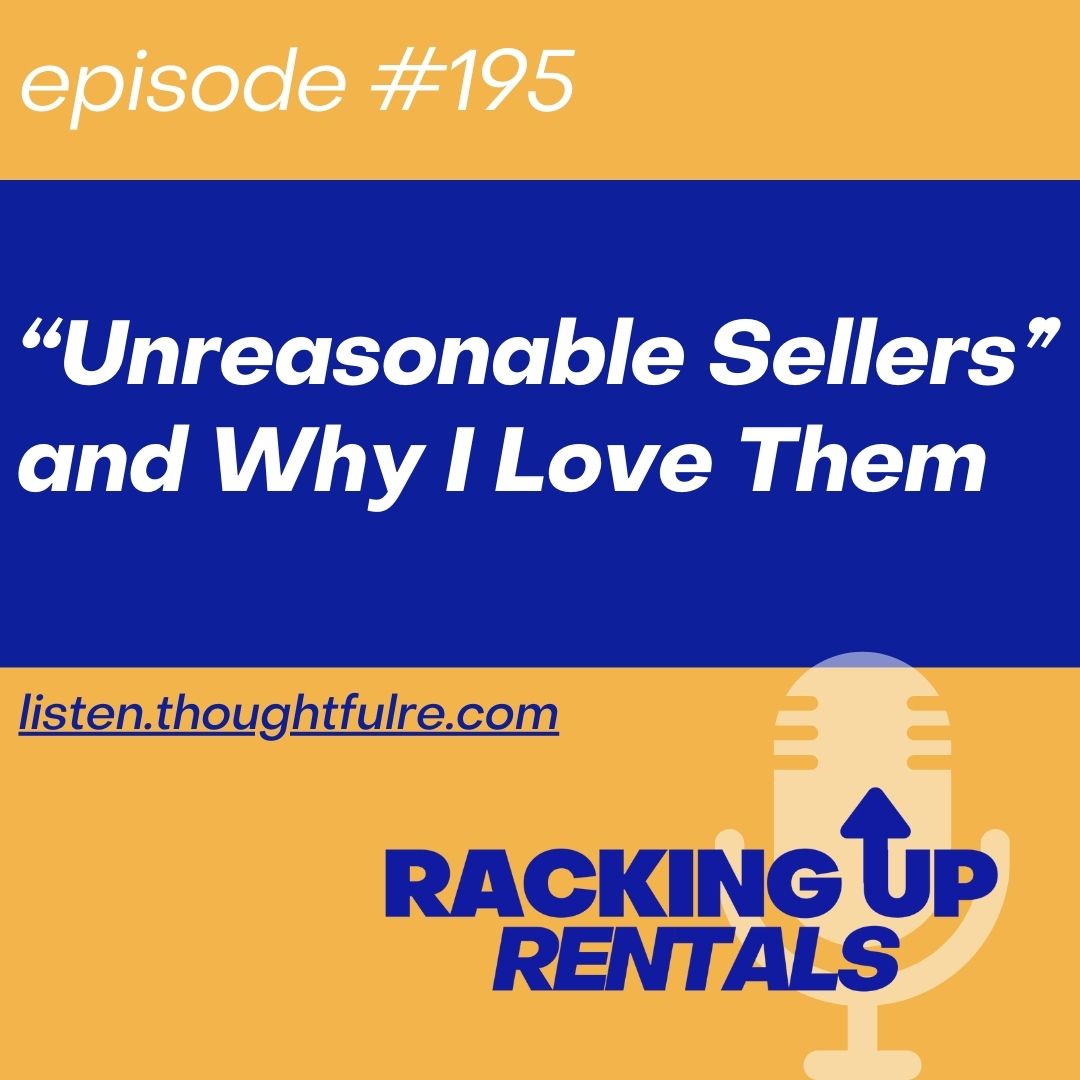
We’ve all met them: the off-market Sellers who we chat with and immediately have red flags that they are not reasonable. But what exactly defines “unreasonable”? For more real estate investors, an unreasonable Seller is one who has unrealistic expectations for their property’s value. But for us Thoughtful Real Estate Entrepreneurs, our perspective is different and we define “unreasonable Sellers” differently. In this episode, Jeff explains why those Sellers who most investors would disregard as “unreasonable” actually represent great opportunity for those skilled in the art of Relationship Capital and Seller Relations.
-
5 Reasons Why You Should Happily Get Seller Financing for a Mere 10% of the Price
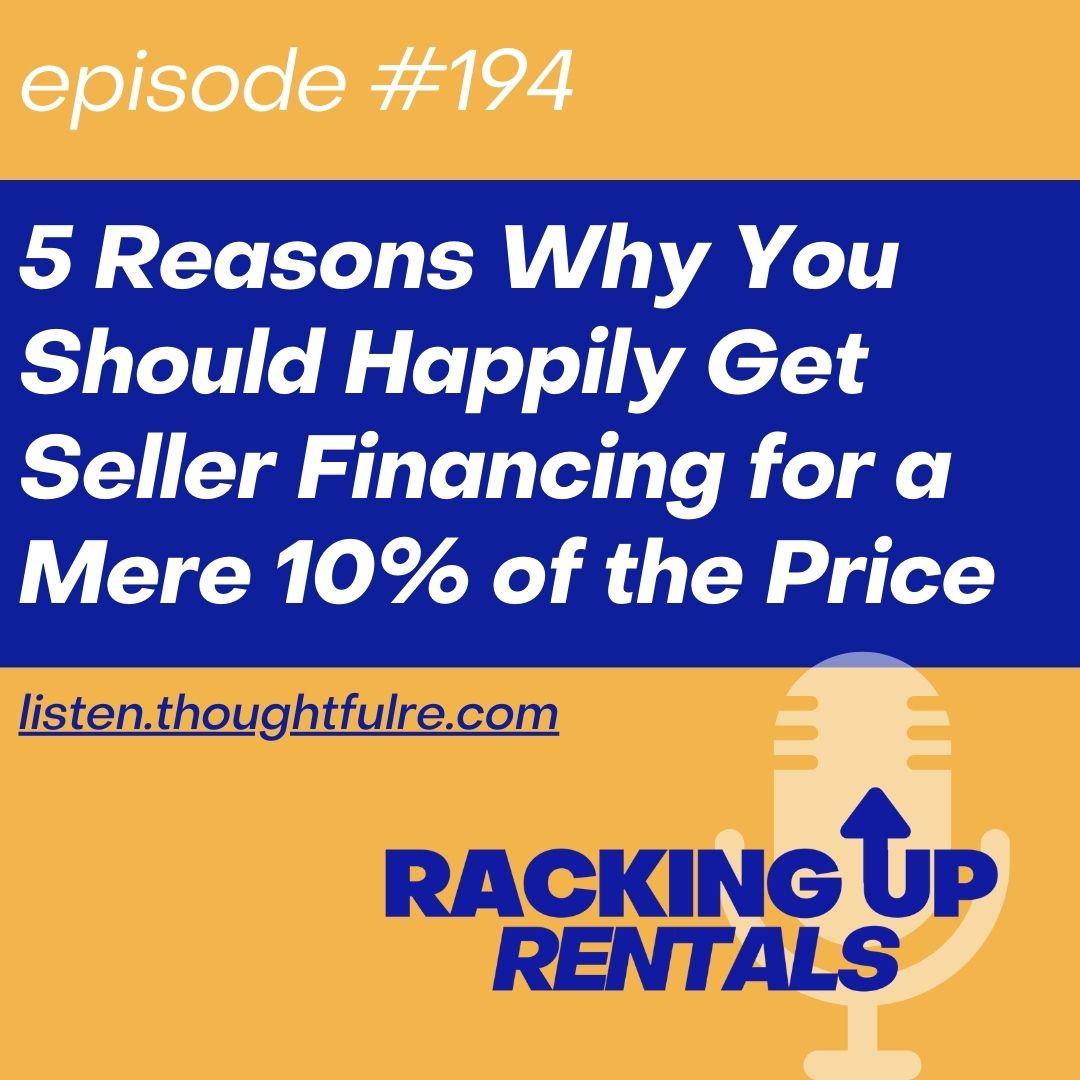
Many real estate investors think that Seller Financing is only beneficial if it results in a tiny—or zero—down payment. In other words, they think that unless they get 90% or higher LTV financing, it’s not worth it. This simply is not true. In this episode, Jeff asks the question: “what if the Seller Financing you could get is only 10% of the total purchase price—would you still do it?” and explains why YES, absolutely you should. Learn the five simply reasons why you should happily get Seller Financing for even just 10% of the price!
-
Putting Your Strengths to Work in Your Real Estate Investing Endeavors
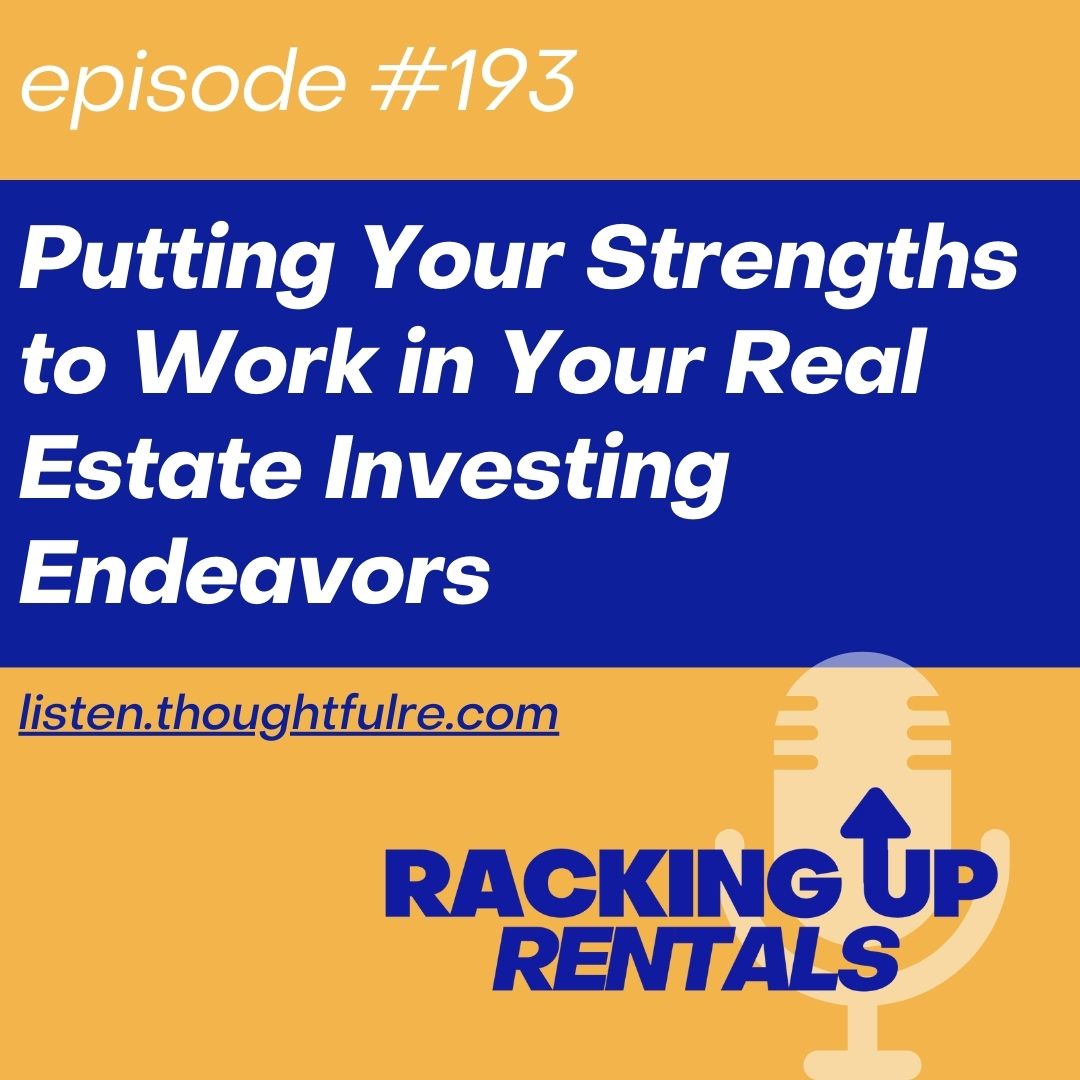
Every one of us has unique talents, gifts and strengths. But unfortunately, the real estate investing education industry doesn’t often emphasize the importance of discovering and harnessing those talents in the pursuit of financial freedom through real estate. Instead, mainstream REI education focuses on teaching us supposed universal formulas and recipes for success…with little or no consideration for what our unique individual talents are. In this episode, Jeff discusses the importance and value of harnessing our own unique gifts in our real estate investing efforts.
-
Find a ‘School of Thought’ to Join
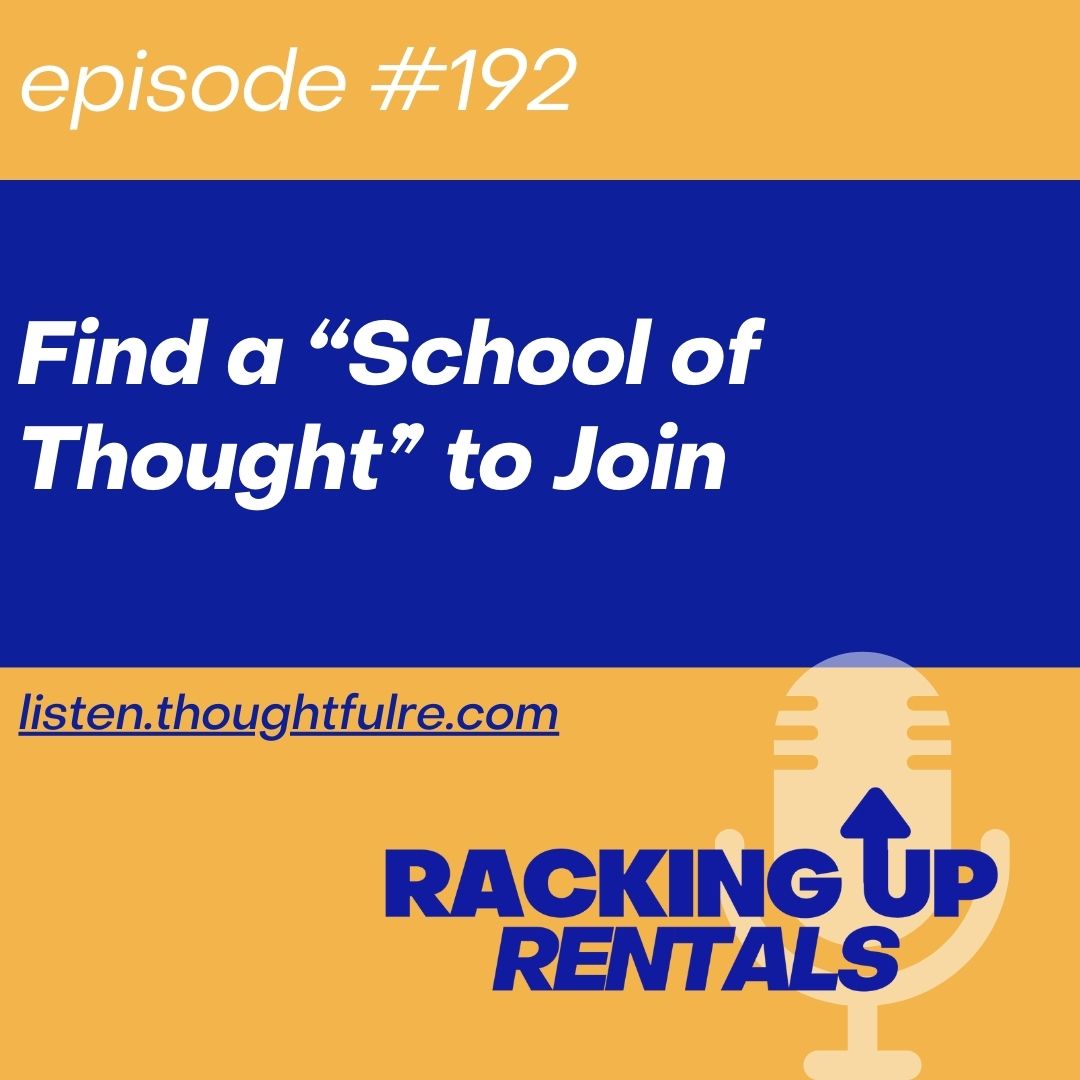
In this special case study episode, Jeff interviews Ryan, a client in The DEALS Workshop. Ryan recently bought his first rental property using the thoughtful approach he learned in The DEALS Workshop, and in this episode he tells the entire story of acquiring this excellent off-market duplex with Seller Financing.
